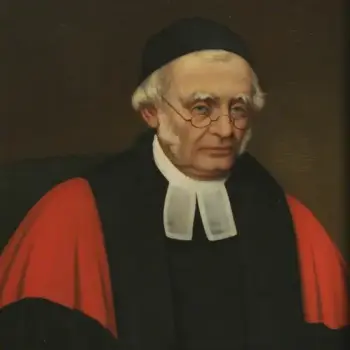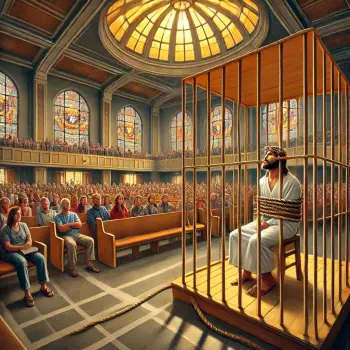In 1832, early in his prophetic career, Joseph Smith made this remarkable claim about revelation:
[T]o every church in past ages which the Lord recognized to be His, He gave revelations, wisely calculated to govern them in the peculiar situation and circumstances under which they were placed, and to enable them by authority to do the peculiar work which they were to perform. The Bible contains revelations given at different times to different people, under different circumstances, . . . . [S]eeing that it not only was, but, as long as God remains the same, always will be, the privilege of the true Church to receive revelations containing blessings and cursings, peculiarly adapted to itself as a Church, we conclude that it is a mistaken notion that the Scriptures of the Old and New Testaments are the only rule of faith and practice . . . . (Joseph Smith, History of The Church of Jesus Christ of Latter-day Saints, vol. 1, 277-78; emphasis added)
What Smith said applied not only to the Old and New Testaments, but also to the revelations that came through him. And it applies to his successors. As he saw it, the Church was to accept the revelations of past prophets and his past revelations, but not to the exclusion of new revelation suited to the circumstances in which God's people find themselves at later times.
This belief in continuing revelation was not just a pragmatic response to circumstance, however. It was central to Smith's understanding of what it means to be a Christian church. Smith's secretary, Wilford Woodruff, records him teaching that when Jesus said, "Upon this rock I will build my church" (Mt. 16:18), the rock that Jesus referred to is the rock of revelation (e.g., see Andrew F. Ehat, Lyndon W. Cook, eds., Words of Joseph Smith 158).
In 1844, after Smith's death, his successor, Brigham Young, reiterated Smith's claim: "The church is built up by revelation, given from day to day according to the requirements of the people. The Lord will not cease to give revelations to the people, unless, the people trample on his laws and forsake and reject him" (History of the Church 285).
Continuing revelation continues to be a pillar of Mormon belief, as Jeffrey R. Holland, one of the LDS Church's current Twelve Apostles, reminded us in October of this year—though he also noted that the belief is one of the reasons that some question whether Mormons are Christians. To be a Mormon is to believe in continuing revelation.
That belief explains why Mormons are peculiarly loyal to their ecclesiastical leaders—sometimes to a fault. We believe that we are led by living prophets and that, in principle, our local leaders are also led by revelation. That can sometimes mean too much reliance on them and not enough on our own reason and intelligence.
But we are not required simply to surrender our minds to those who lead us. Though Joseph Smith understood the Church to be built on revelation, the rock of revelation was not only revelation to leaders. It is required for those who minister: "Salvation cannot come without revelation, it is in vain for anyone to minister without it" (Words of Joseph Smith 10). But the Church is also built on the rock of individual revelation: "[A]ny man that does not receive revelation for himself must be damned for the testimony of Jesus is the spirit of prophicy [sic]" and "It is the privilege of the Children of God to come to God & get Revelation" (Words of Joseph Smith 230; 13).
As Brigham Young said, "It is a special privilege and blessing of the holy Gospel to every true believer, to know the truth for himself. For orators to speak to us, Prophets to expound the law, and teach us doctrine, for the special purpose of giving us comfort, is not particularly required" (Journal of Discourses 1:234).
Young's insistence on personal revelation has placed revelation at the heart of Mormon worship. He described what continues to be a Mormon attitude toward preaching:
It yields solid satisfaction to hear men testify of the truth of the Gospel. . . . It is to me one of the best of sermons to hear men and women relate to each other how the Lord has wrought upon their understanding, and brought them into the path of truth, life, and salvation. I would rather hear men tell their own experience, and testify that Joseph was a Prophet of the Lord, and that the Book of Mormon, the Bible, and other revelations of God, are true; that they know it by the gift and power of God; that they have conversed with angels, have had the power of the Holy Ghost upon them, giving them visions and revelations, than hear any other kind of preaching that ever saluted my ears. (Journal of Discourses1:90)





